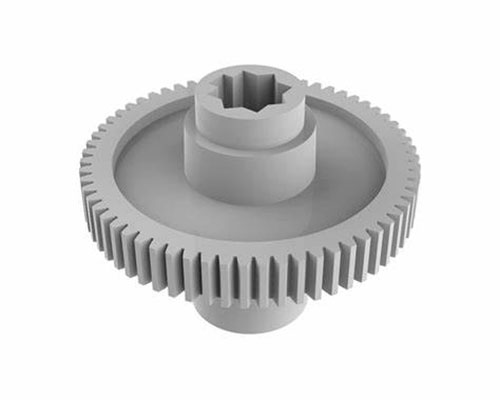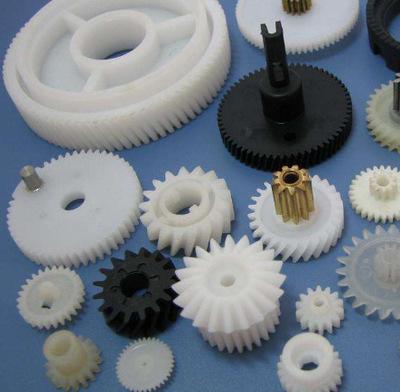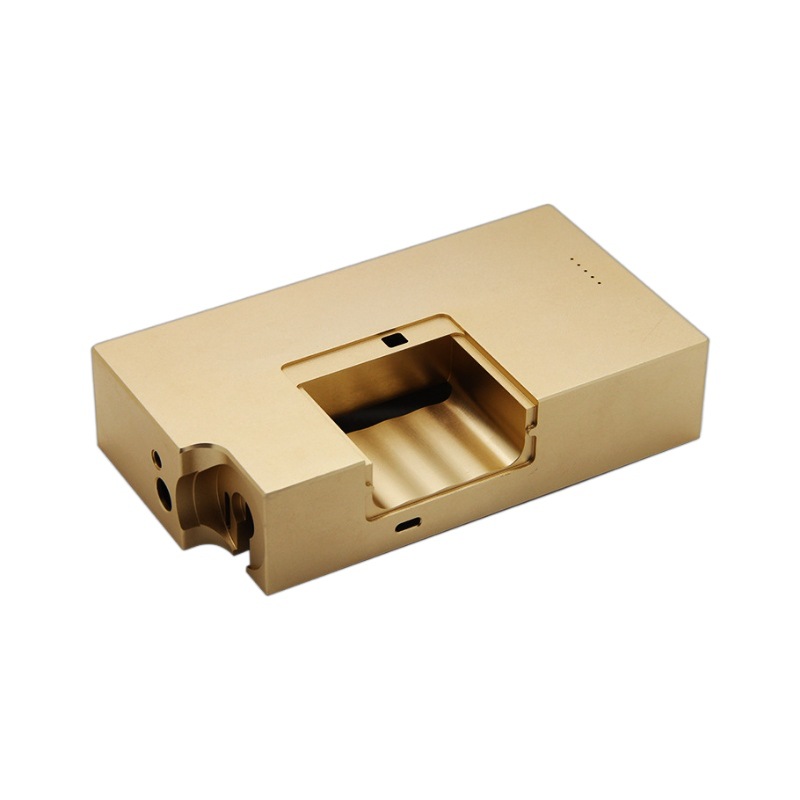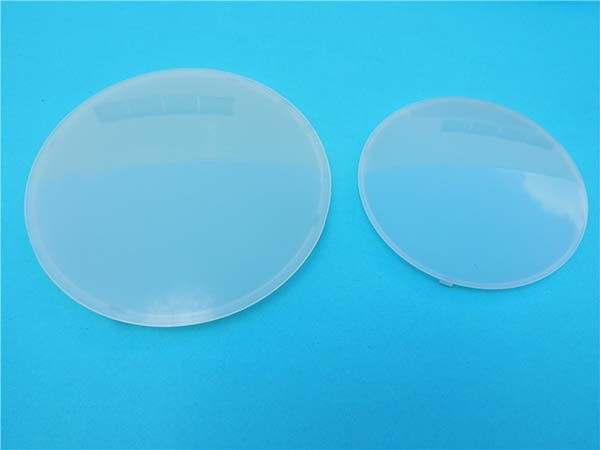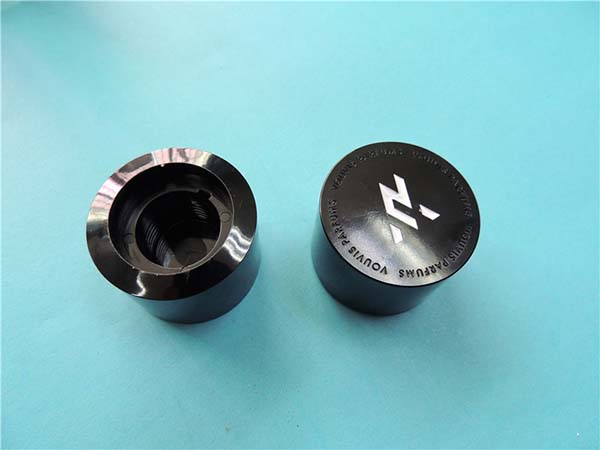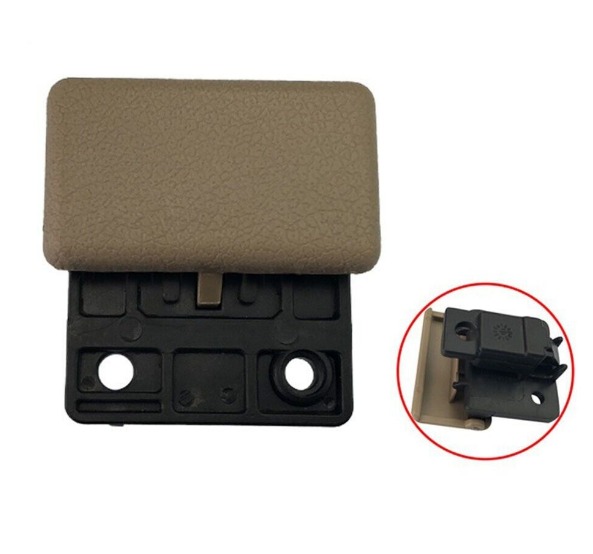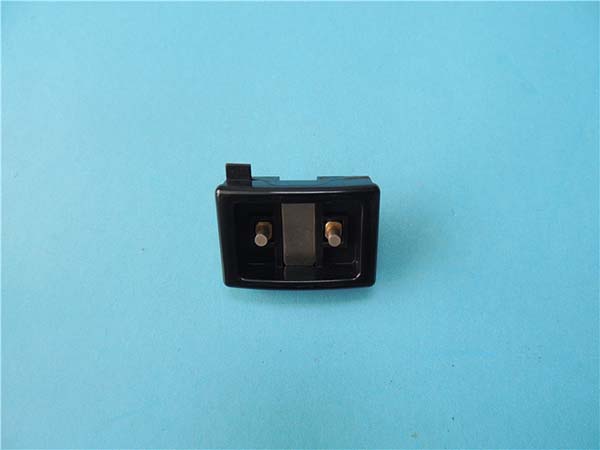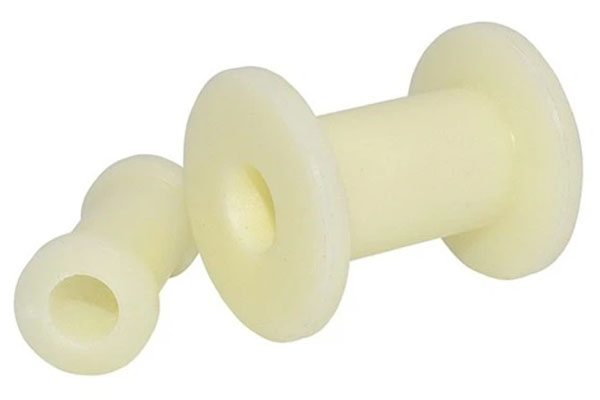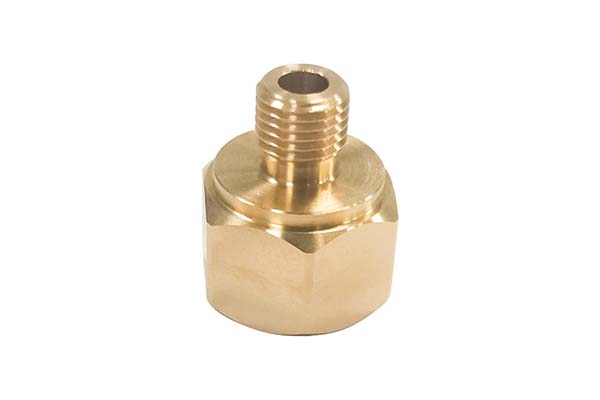Introduction
What are Plastic Pinion Gears?
Plastic pinion gears are small, toothed wheels made from various types of plastic materials. They are integral components in mechanical systems, designed to mesh with larger gears (known as spur gears or other types of gears) to transmit rotational motion and power. These gears typically have a cylindrical shape with teeth evenly spaced around the outer circumference. Their appearance may vary in size, from tiny gears used in miniature devices like watches and small motors to larger ones found in industrial equipment, but they all share the characteristic toothed structure that enables them to interact with other gears.
Importance in the Field
Plastic pinion gears hold significant importance in the field of mechanical engineering and various industries. In mechanical transmission systems, they are fundamental for achieving speed reduction or increase, torque conversion, and precise motion control. For Yigu Technology example, in automotive applications, plastic pinion gears can be found in windshield wiper mechanisms, power window systems, and some transmission components. Their ability to operate smoothly and quietly makes them ideal for applications where noise reduction is crucial, such as in household appliances like washing machines, dryers, and blenders. In the electronics industry, they are used in the motors of devices like CD players and printers, ensuring accurate movement of components. Their lightweight nature also contributes to energy - efficiency in battery - powered devices, making them a preferred choice in the design of portable electronics. Overall, plastic pinion gears are essential for the proper functioning of a wide range of equipment, playing a key role in enhancing performance, reducing costs, and enabling innovation in product design.
Common Materials for Plastic Pinion Gears
Nylon
Nylon, also known as polyamide (PA), is a popular choice for plastic pinion gears. It offers several advantageous properties. Nylon has high strength, which allows it to withstand the mechanical stresses during gear operation. Its tensile strength can range from 50 - 100 MPa depending on the specific type and any reinforcements added. This strength makes it suitable for applications where the gear needs to transmit a certain amount of power without easily breaking or deforming.
One of the most notable features of nylon is its excellent wear resistance. In meshing operations with other gears, the teeth of nylon pinion gears experience relatively low wear rates. This is crucial for applications that require long - term, reliable operation. For Yigu Technology example, in industrial machinery where the gears are in continuous use, nylon pinion gears can maintain their performance over an extended period. Additionally, nylon has self - lubricating properties. It has a low coefficient of friction, typically in the range of 0.1 - 0.3, which means it can operate smoothly without the need for excessive external lubrication. This self - lubrication not only reduces maintenance requirements but also helps in reducing energy consumption during gear operation. Due to these properties, nylon is often used in applications such as conveyor systems, where durability and low - maintenance operation are essential.
Polyacetal (POM)
Polyacetal, or POM, is another widely used material for plastic pinion gears. It is highly regarded for its outstanding dimensional stability. POM has a very low coefficient of thermal expansion, usually around 8 - 12 x 10⁻⁵/°C. This means that changes in temperature have minimal impact on the size and shape of POM - made pinion gears. In precision - driven applications, such as those found in watches or high - precision industrial control systems, dimensional stability is crucial to ensure accurate and consistent operation.
POM also has an impressively low friction coefficient, even lower than that of nylon in some cases, typically in the range of 0.05 - 0.2. This low friction enables smooth and efficient power transmission. In high - speed applications, the low - friction nature of POM helps to reduce heat generation during gear meshing, which in turn extends the lifespan of the gears. Its high stiffness and fatigue resistance are additional benefits. POM can maintain its shape and mechanical properties even under repeated cyclic loading, making it suitable for applications where the gears are subjected to frequent start - stop operations or varying loads. In the automotive industry, POM pinion gears are used in components like window regulators and door lock mechanisms, where their precision and durability are highly valued.
Polycarbonate (PC)
Polycarbonate is a thermoplastic material with unique characteristics that make it suitable for specific applications of plastic pinion gears. It has a high impact strength, which means it can withstand sudden and significant forces without cracking or breaking. PC can typically withstand impact energies of up to 50 - 80 kJ/m², depending on its formulation. This property makes it ideal for use in gears within devices that may be subject to physical shocks, such as in portable power tools or some types of consumer electronics.
PC also exhibits excellent electrical properties. It has a high dielectric strength, usually around 20 - 30 kV/mm, making it a great choice for applications in the electrical and electronics industries. For example, in small electric motors found in printers, CD - ROM drives, or other electronic devices, PC pinion gears can be used to transmit power while providing electrical insulation. Additionally, PC is transparent or can be made into transparent products easily. This transparency can be an advantage in some applications where visual inspection of the gear operation is required, or in optical - related devices where the gear needs to be part of an optical system without obstructing light paths.
Applications of Plastic Pinion Gears
Automotive Industry
In the automotive industry, plastic pinion gears find their way into various components, contributing to the overall functionality and comfort of vehicles.
1. Window Lifting Systems:Plastic pinion gears are commonly used in power window mechanisms. For Yigu Technology example, polyacetal (POM) pinion gears are preferred here due to their excellent dimensional stability and low friction coefficient. In a typical power window setup, the motor rotates the plastic pinion gear, which meshes with a larger rack gear. This gear - rack mechanism converts the rotational motion of the pinion into linear motion, allowing the window to move up and down smoothly. The self - lubricating property of POM reduces the need for frequent lubrication, which is crucial for long - term, maintenance - free operation. Additionally, the lightweight nature of plastic pinion gears helps in reducing the overall weight of the window - lifting system, which in turn contributes to better fuel efficiency.
2. Wiper Systems:Windshield wiper systems also rely on plastic pinion gears. Nylon is often the material of choice for these gears. The wiper motor drives a plastic pinion gear, which then transfers the rotational force to a linkage system that moves the wiper blades back and forth. Nylon's high strength and wear resistance enable it to withstand the continuous reciprocating motion and the mechanical stresses associated with wiping off rain, snow, and debris from the windshield. The quiet operation of nylon pinion gears is also an advantage, as it ensures that the noise generated by the wiper system does not distract the driver.
Electronics
Plastic pinion gears play a vital role in the precise operation of many electronic devices.
1. Printers:In printers, plastic pinion gears are used in multiple subsystems. The paper - feeding mechanism, for instance, often employs POM pinion gears. These gears work in tandem with other components to pick up, align, and feed the paper accurately through the printer. POM's high wear resistance ensures that the gears can handle the frequent start - stop motions and the friction caused by the paper. For the movement of the print head, small plastic pinion gears are used to achieve precise lateral and longitudinal positioning. This precision is essential for high - quality printing, as even a slight misalignment could result in blurred or misprinted text and images.
2. Optical Drives (CD - ROMs, DVD - ROMs):Optical drives rely on plastic pinion gears for the rotation of the disc and the movement of the laser head. Polycarbonate (PC) is a common material for these gears. The disc - spinning motor uses a plastic pinion gear to transfer its rotational energy to the disc spindle, ensuring that the disc rotates at a constant speed. PC's high impact strength is beneficial here, as it can withstand any potential vibrations or shocks that the drive may experience during normal use. The laser - head positioning mechanism also uses plastic pinion gears to move the laser precisely to read the data on the disc. The electrical insulating properties of PC are an added advantage, as it helps in preventing any short - circuits or electrical interference within the drive.
Home Appliances
Plastic pinion gears are integral to the proper functioning of many household appliances.
1. Washing Machines:In washing machines, the motor's power is transmitted to the drum through a series of gears, often including plastic pinion gears. Reinforced nylon is a popular choice for these gears due to its high strength and fatigue resistance. The pinion gears help in controlling the speed and direction of the drum's rotation, whether it's for washing, rinsing, or spinning cycles. They can withstand the high torque and the frequent start - stop operations associated with a washing machine's operation. Additionally, in the water - control mechanisms such as the inlet and outlet valves, smaller plastic pinion gears are used to control the opening and closing of the valves. POM is often used for these smaller gears because of its good water resistance and dimensional stability.
2. Juicers:For juicers, plastic pinion gears are used in the motor - driven mechanism that rotates the cutting blades or the auger. Nylon or POM pinion gears are suitable for this application. The motor rotates the pinion gear, which then transfers the power to the main shaft of the cutting or squeezing component. The self - lubricating properties of these plastics reduce the friction between the gears, resulting in smooth operation and longer - lasting performance. The quiet operation of plastic pinion gears is also a plus for kitchen appliances, as it ensures a more pleasant user experience.
Medical Devices
The use of plastic pinion gears in medical devices is driven by specific requirements such as biocompatibility and low - noise operation.
1. Biocompatibility:Medical devices that come into contact with the human body, such as some surgical instruments, prosthetics, and diagnostic equipment, require components made from biocompatible materials. Certain types of plastics used for pinion gears, like medical - grade nylon, are designed to be biocompatible. This means they do not cause an adverse reaction when in contact with body tissues or fluids. For example, in a prosthetic joint replacement device that has a small motor - driven adjustment mechanism, plastic pinion gears made from biocompatible materials can be used to transmit the necessary rotational motion for fine - tuning the device's fit or function.
2. Low - Noise Operation:In devices like portable medical monitors or diagnostic equipment used in quiet clinical environments, low - noise operation is crucial. Plastic pinion gears, with their inherent ability to operate quietly compared to metal gears, are ideal for these applications. In an electrocardiogram (ECG) machine that has a small motor - driven paper - feeding mechanism, plastic pinion gears ensure that the noise generated during paper movement does not interfere with the patient's comfort or the accuracy of the test results. Their low - noise operation also helps in reducing stress for medical staff and patients alike in a healthcare setting.
Comparison with Metal Pinion Gears
Strength and Durability
When it comes to strength and durability, metal pinion gears have long been the benchmark in many industrial applications. Metals such as steel and aluminum alloys are known for their high tensile and compressive strengths. For example, carbon steel gears can have a tensile strength of up to 800 - 1500 MPa, which allows them to handle high - torque applications and heavy loads. In industrial machinery like large - scale manufacturing equipment or heavy - duty vehicles, metal gears are often the go - to choice due to their ability to withstand extreme mechanical stresses over long periods.
However, plastic pinion gears are not without their own merits in this regard. Nylon, for instance, has a tensile strength in the range of 50 - 100 MPa, which is significantly lower than steel but still sufficient for many light - to - medium - duty applications. In a study comparing plastic (nylon) and metal (steel) pinion gears in a small - scale conveyor system, the metal gears lasted for 10,000 operating hours under normal load conditions before showing signs of significant wear. The nylon plastic gears, on the other hand, lasted for 5,000 hours under the same conditions. While the metal gears had a longer lifespan, the plastic gears were still able to function adequately for a considerable time in this less - demanding application. Additionally, plastic gears can be reinforced with materials like glass fibers to enhance their strength. Glass - filled nylon, for example, can increase the tensile strength by up to 50%, making it suitable for applications with slightly higher stress requirements.
Weight and Cost
One of the most significant advantages of plastic pinion gears is their weight. Plastic materials are much lighter than metals. For example, the density of nylon is approximately 1.15 g/cm³, while that of aluminum is around 2.7 g/cm³ and steel is about 7.85 g/cm³. This weight difference can be crucial in applications where reducing the overall weight of a system is a priority, such as in aerospace components or portable electronics. In a small - scale electric vehicle prototype, replacing metal pinion gears with plastic ones reduced the weight of the transmission system by 30%, which directly contributed to improved energy efficiency and longer battery life.
Cost - effectiveness is another area where plastic pinion gears have an edge. The raw materials for plastic gears are generally less expensive than metals. The manufacturing process for plastic gears, such as injection molding, is often more cost - efficient, especially for high - volume production. A cost - comparison study showed that for a production run of 10,000 small - sized pinion gears, the cost of manufacturing plastic gears was approximately 40% lower than that of metal gears. This cost advantage makes plastic pinion gears an attractive option for industries that need to keep production costs down without sacrificing too much on performance, such as the consumer electronics and toy industries.
Noise and Vibration
Plastic pinion gears are renowned for their ability to reduce noise and vibration during operation. In a meshing process, the teeth of plastic gears are more compliant compared to metal gears. A laboratory experiment measured the noise levels of a gear - driven system using both metal and plastic pinion gears. When the metal gears were in operation, the noise level reached 80 dB(A) at a rotational speed of 1000 RPM. In contrast, when the plastic (POM) gears were used in the same system, the noise level dropped to 65 dB(A) at the same speed. This reduction in noise is due to the damping properties of plastic materials. The flexibility of the plastic teeth allows them to absorb some of the impact and shock during meshing, which in turn reduces the vibrations that cause noise. In applications such as household appliances, office equipment, and medical devices, where a quiet operation is essential, plastic pinion gears are highly preferred over their metal counterparts.
Yigu Technology's View
As a non - standard plastic metal products custom supplier, Yigu Technology attaches great importance to the production of plastic pinion gears. We understand that different applications demand specific properties from plastic pinion gears, so we strictly control the selection of materials and manufacturing processes.
When choosing materials, we thoroughly evaluate the requirements of the application, such as considering nylon for its strength and wear - resistance in applications with high - stress and long - term operation needs. For precision - driven applications, we might opt for POM due to its dimensional stability. By precisely matching the material to the application, we ensure the optimal performance of the plastic pinion gears.
In the manufacturing process, we use advanced techniques like injection molding, and we have strict quality control measures in place. This allows us to produce plastic pinion gears with high precision, meeting the diverse needs of our customers, whether it's for the automotive, electronics, home appliance, or medical device industries.
FAQ
What are the main advantages of plastic pinion gears?
Plastic pinion gears have several main advantages. Firstly, they are lightweight, with a much lower density compared to metal gears. For example, nylon has a density of about 1.15 g/cm³, much less than metals like steel (around 7.85 g/cm³). This makes them ideal for applications where weight reduction is crucial, such as in portable electronics. Secondly, they are cost - effective. The raw materials for plastic gears are generally cheaper, and the manufacturing process like injection molding is more cost - efficient, especially for high - volume production. Thirdly, plastic pinion gears operate quietly and with less vibration. Their compliant teeth can absorb impact during meshing, reducing noise levels. For instance, in a gear - driven system, plastic (POM) gears can reduce the noise level by about 15 dB(A) compared to metal gears at the same rotational speed.
How to choose the right material for plastic pinion gears?
When choosing the right material for plastic pinion gears, several factors need to be considered. First, analyze the application scenario. For automotive window - lifting systems, materials like POM are preferred due to their dimensional stability and low friction, which ensure smooth and long - lasting operation. In contrast, for devices that may experience physical shocks, such as portable power tools, polycarbonate with its high impact strength is a better choice. Second, consider the performance requirements. If high - strength and wear - resistance are needed, nylon might be the go - to material. For applications where precise movement is crucial, like in watches, materials with high dimensional stability such as POM are more suitable. Also, take into account chemical resistance and temperature range. For example, in an environment with chemical exposure, certain specialized plastics might be required, while in high - temperature applications, materials with good heat - resistance properties should be selected.
Can plastic pinion gears replace metal pinion gears completely?
Plastic pinion gears cannot replace metal pinion gears completely. Although plastic pinion gears have many advantages, in high - load applications, metal pinion gears still have significant advantages. For example, in large - scale industrial machinery or heavy - duty vehicles, the high tensile and compressive strengths of metal gears (such as carbon steel gears with a tensile strength of up to 800 - 1500 MPa) enable them to handle high - torque and heavy - load operations that plastic gears cannot match. Metal gears also have better heat - dissipation capabilities, which is important in applications where high - speed operation generates a lot of heat. Additionally, in some applications that require high - precision long - term operation under extreme conditions, metal gears' superior durability and dimensional stability make them the preferred choice over plastic pinion gears.
